RS Aggarwal Class 7 Math Seventeenth Chapter Constructions Exercise 17C Solution
EXERCISE 17C
OBJECTIVE QUESTIONS
Mark (√) against the correct answer in each of the following:
(1) The supplement of 45o is
Ans: (c) 135o
Solution: (90 + 45) = 135o
(2) The complement of 80o is
Ans: (b) 10o
Solution: (90 – 80) = 10o
(3) An angle is its own complement. The measure of the angle is
Ans: (c) 90o
(4) An angle is one – fifth of its supplement. The measure of the angle is
Ans: (a) 30o
(5) An angle is 24o more than its complement. The measure of the angle is
Ans: (b) 57o
(6) An angle is 32o less than its supplement. The measure of the angle is
Ans: (b) 74o
(7) Two supplementary angles are in the ratio 3 : 2. The smaller angle measure
Ans: (c) 72o
(8) In the given figure, AOB is a straight line and the ray OC stands on it.
Ans: (b) 48o
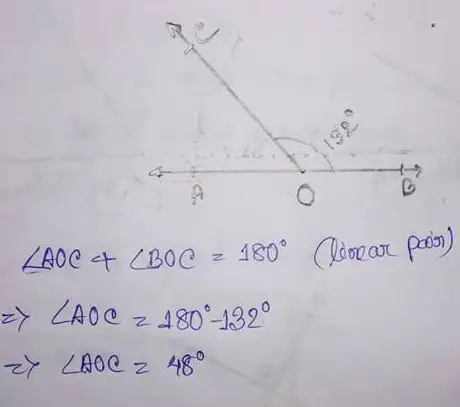
(9) In the given figure, AOB is a straight line, ∠AOC = 68o and ∠BOC = xo. The value of x is
Ans: (c) 112
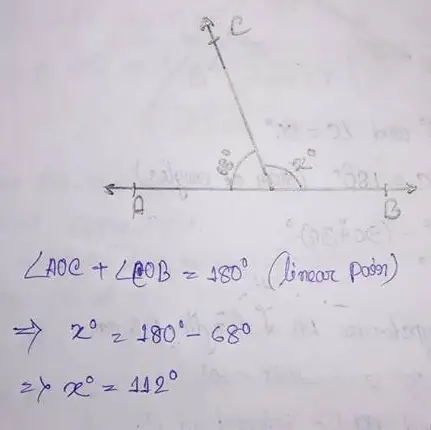
(10) In the adjoining figure, what value of x will make AOB a straight line?
Ans: (b) x = 35

(11) In the given figure, what value of x will make AOB a straight line?
Ans: (d) x = 80
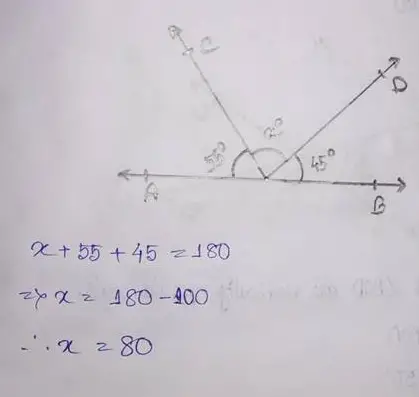
(12) In the given figure, it is given that AOB is a straight line and 4x = 5y. What is the value of x?
Ans: (a) 100
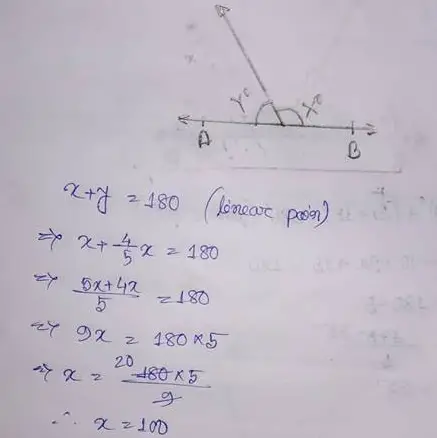
(13) In the given figure, two straight lines AB and CD intersect at a point O and ∠AOC = 50o. Then ∠BOD =?
Ans: (b) 50o
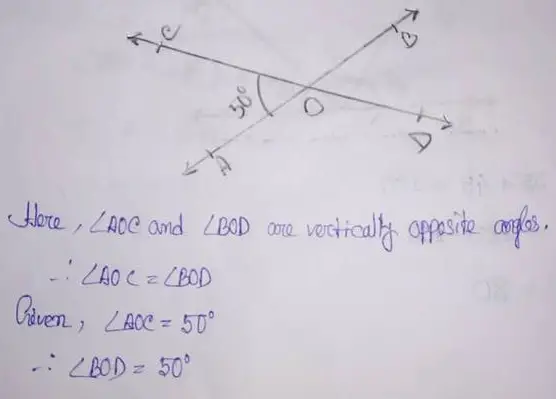
(14) In the given figure, AOB is a straight line, ∠AOC = (3x – 8)o, ∠COD = 50o and ∠BOD = (x+10)o. The value of x is
Ans: (a) 32
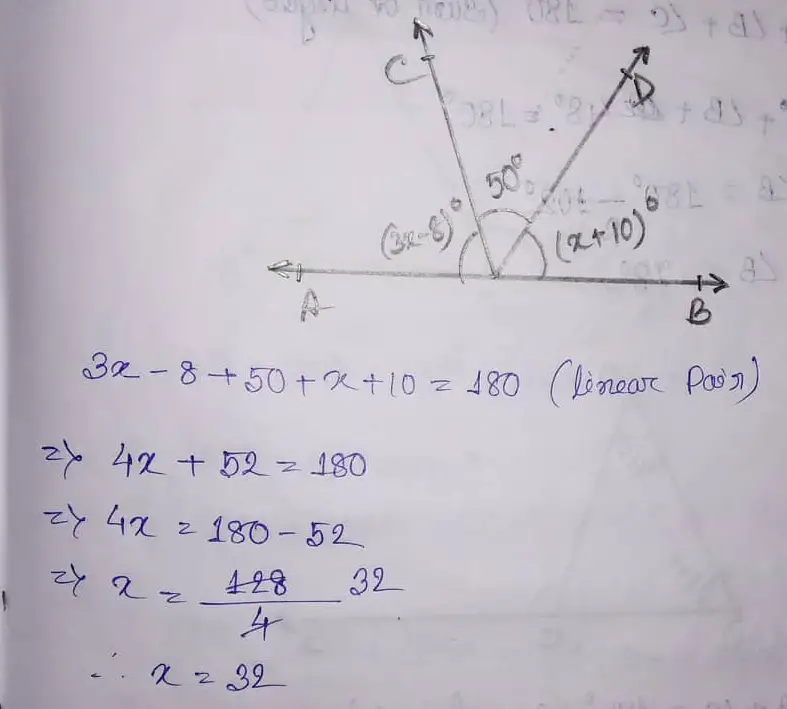
(15) In ∆ABC, side BC has been produced to D. If ∠ACD = 132o and ∠A = 54o. then ∠B =?
Ans: (b) 78o
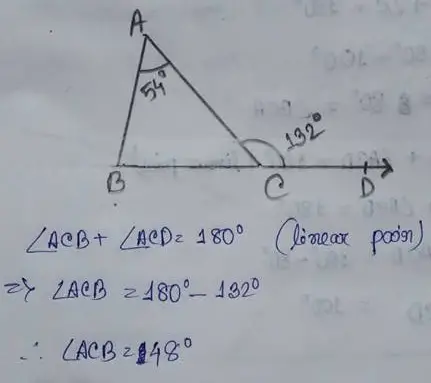
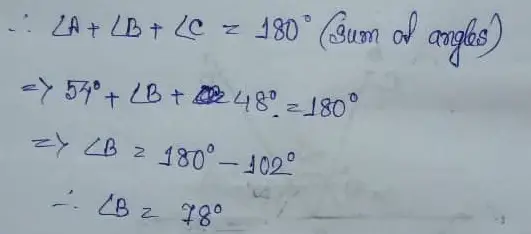
(16) In ∆ABC, side BC has been produced to D. If ∠BAC = 45o and ∠ABC = 55o, then ∠ACD =?
Ans: (c) 100o

(17) In the given figure, side BC of ∆ABC is produced to D such that ∠ABC = 70o and ∠ACD = 120o. Then, ∠BAC =?
Ans: (b) 50o
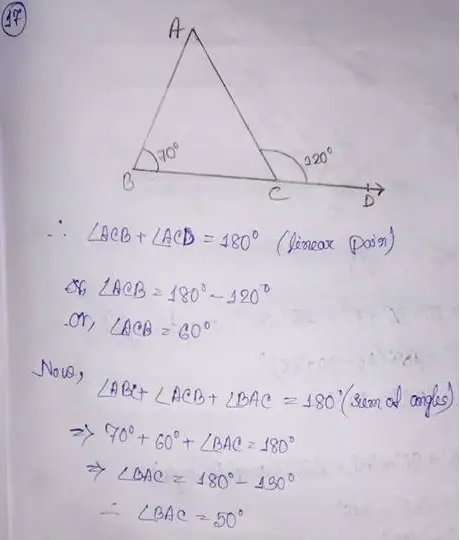
(18) In the given figure, rays OA, OB, OC and OD are such that ∠AOB = 50o, ∠BOC = 90o, ∠COD = 70o and ∠AOD = xo.
Ans: (c) 150o
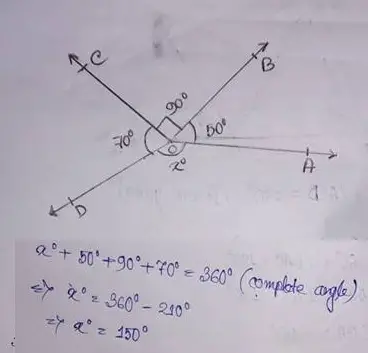
(19) In the given figure, ∠A = 50o, CE ∥ BA and ECD = 60o. Then, ∠ACB =?
Ans: (c) 70o
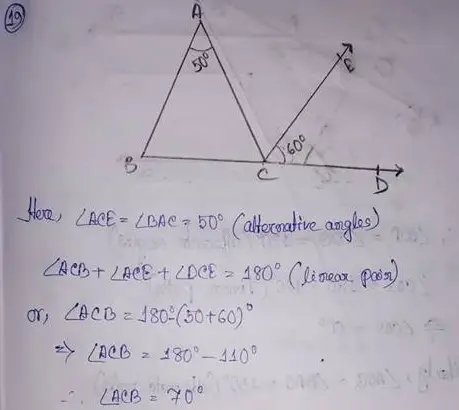
(20) In ∆ABC, if ∠A = 65o and ∠C = 85o, then ∠B =?
Ans: (b) 30o
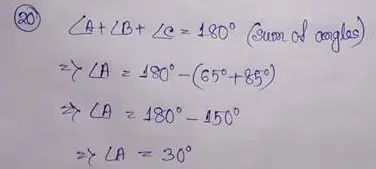
(21) The sum of all angles of a triangle is
Ans: (d) 180o
(22) The sum of all angles of a quadrilateral is
Ans: (c) 360o
(23) In the given figure, AB ∥ CD, ∠OAB = 150o and ∠OCD = 120o. Then, ∠AOC =?
Ans: (b) 90o
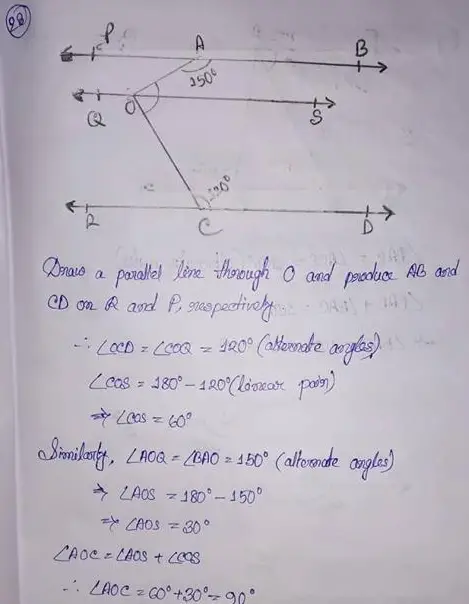
(24)In the given figure, PQ ∥ RS, ∠PAB = 60o and ∠ACS = 100o. Then, ∠BAC =?
Ans: (a) 40o
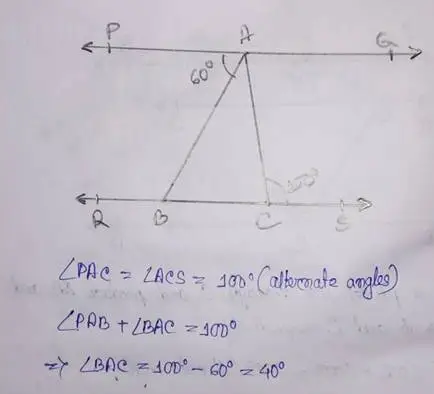
(25) In the given figure, AB ∥ CD ∥ EF, ∠ABG = 110o, ∠GCD = 100o and ∠BGC = xo. Then, x =?
Ans: (c) 30
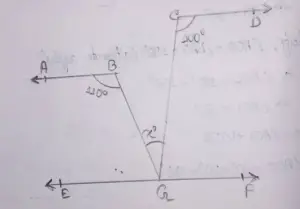
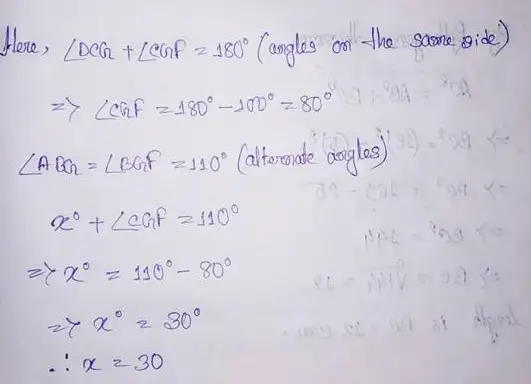
(26) The sum of any two sides of a triangle is always
Ans: (d) Greater than the 3rd side.
(27) The diagonals of a rhombus
Ans: (d) Always bisect each other at right angles.
(28) In ∆ABC, ∠B = 90o, AB = 5 cm and AC = 13 cm. Then, BC =?
Ans: (c) 12 cm
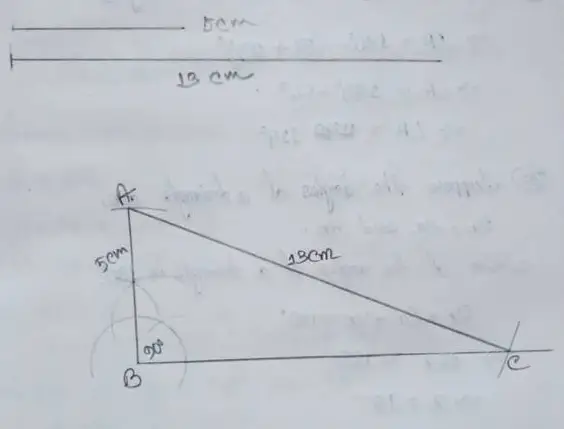
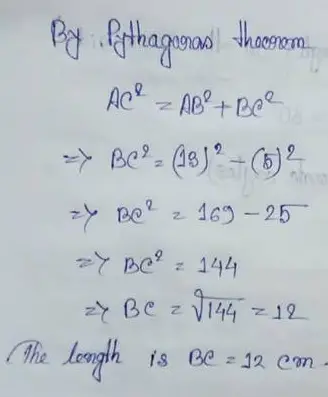
(29) In a ∆ABC it is given that ∠B = 37o and ∠C = 29o. Then, ∠A =?
Ans: (c) 114o
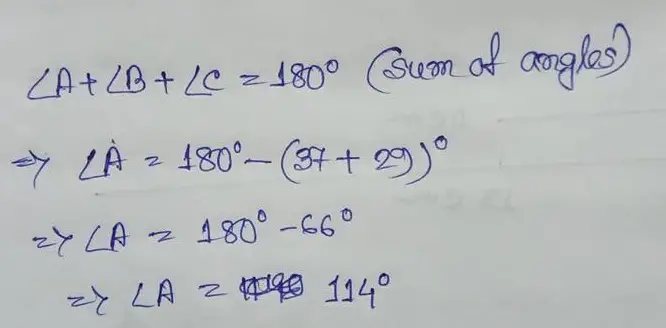
(30) The angles of a triangle are in the ratio 2 : 3 : 7. The measure of the largest angle is
Ans: (c) 105o
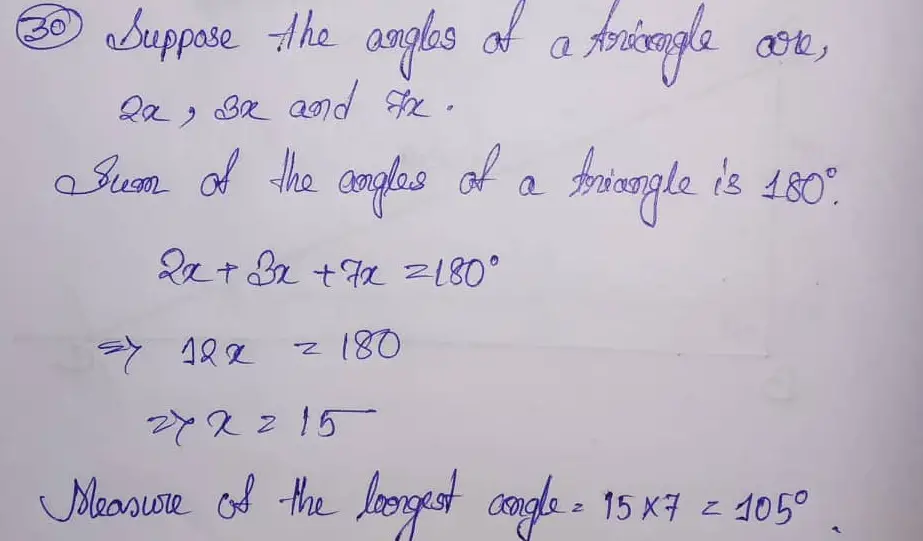
(31) In a ∆ABC, if 2∠A = 3∠B = 6∠C, then ∠B =?
Ans: (c) 60o
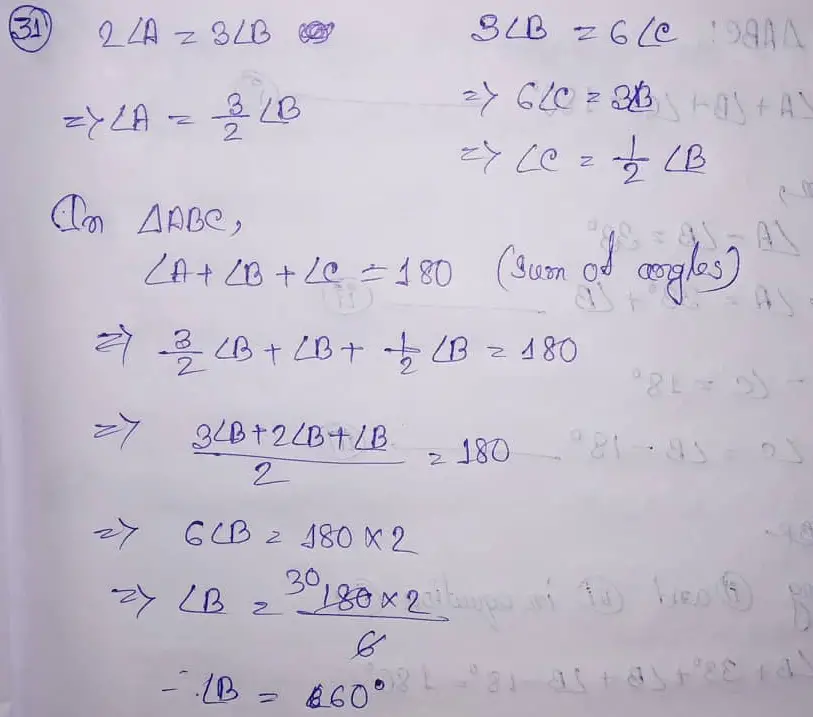
(32) In a ∆ABC, if ∠A + ∠B = 65o and ∠B + ∠C = 140o. Then, ∠B =?
Ans: (a) 25o
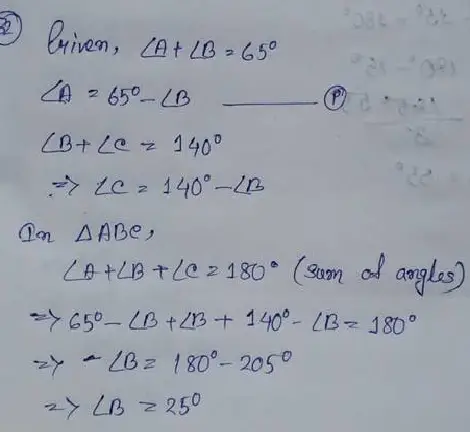
(33) In a ∆ABC, ∠A – ∠B = 33o and ∠B – ∠C = 18o. Then, ∠B =?
Ans: (b) 55o
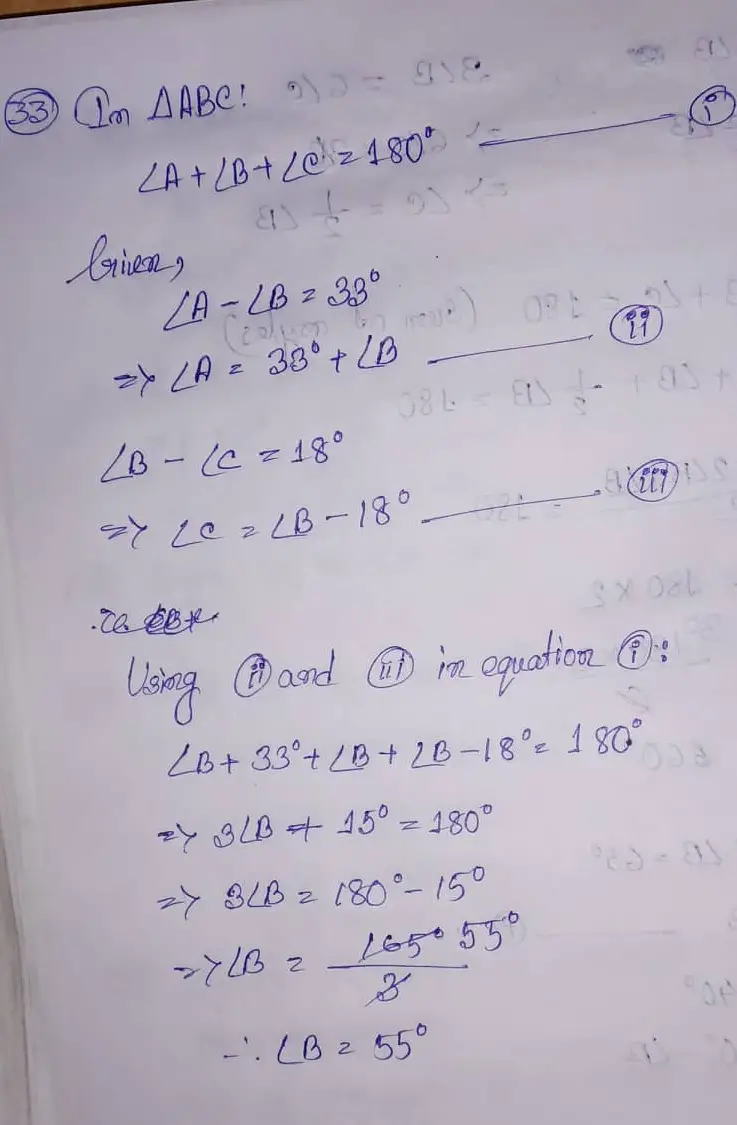
(34) The angles of a triangle are (3x)o, (2x – 7)o and (4x – 11)o. Then, x =?
Ans: (c) 22
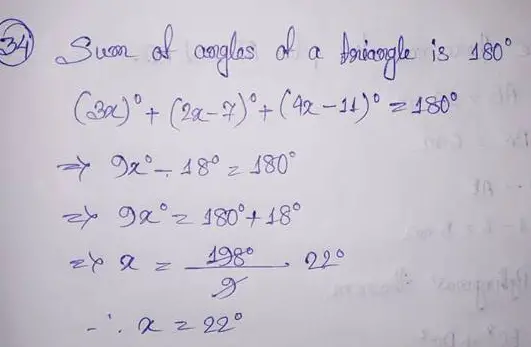
(35) ∆ABC is right – angled at A. If AB = 24 cm and AC = 7 cm, then BC =?
Ans: (c) 25 cm
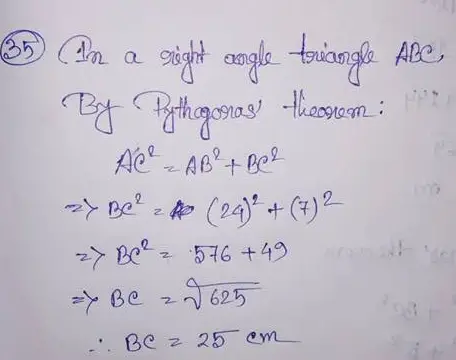
(36) A ladder is placed in such a way that its foot is 15 m away from the wall and its top reaches a window 20 m above the ground. The length of the ladder is
Ans: (b) 25 m
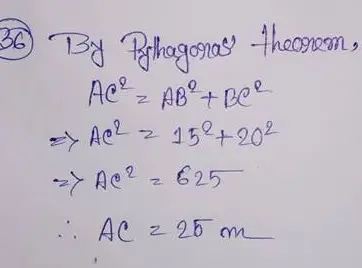
(37) Two poles of heights 6 m and 11 m stand vertically on a plane ground. If the distance between their feet is 12 m, what is the distance between their tops?
Ans: (a) 13 m
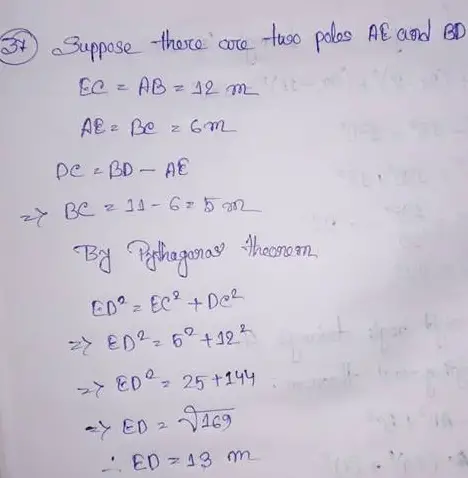
(38) ∆ABC is an isosceles triangle with ∠C = 90o and AC = 5 cm. Then, AB =?
Ans: (d) 5√2 cm
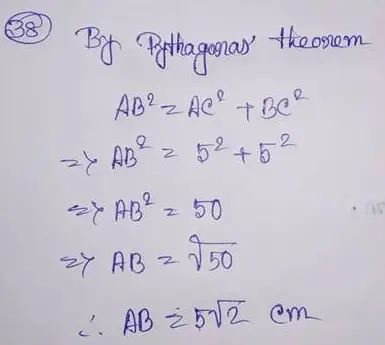
Leave a Reply